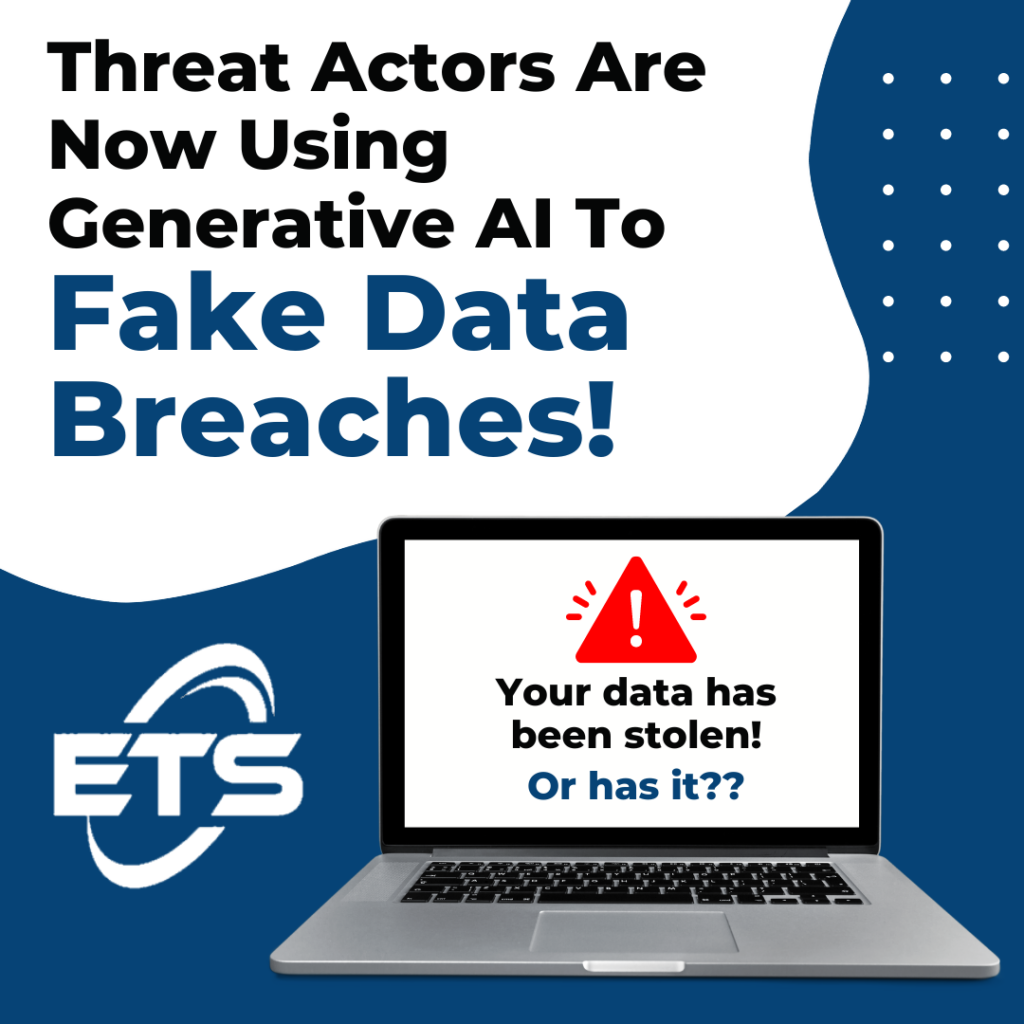Cybercriminals Are Faking Data Breaches: How AI Is Fueling This New Scam
Cybercriminals are constantly innovating new ways to deceive businesses, and now they’re now using fake data breaches to exploit unsuspecting medical practices. These scams can lead to significant financial loss and damage to your practice’s reputation. Let’s explore how these scams work and what you can do to protect your medical practice in Las Vegas.
The New Threat: Fake Data Breaches
Earlier this year, Europcar, a major car rental company, discovered a cybercriminal selling what appeared to be private information about its 50 million+ customers on the dark web. Upon investigation, the data was found to be fake, likely generated using AI tools like ChatGPT. This demonstrates how easily cybercriminals can create convincing but false data sets to scam businesses.
How Do Cybercriminals Fake Data Breaches?
Cybercriminals use AI-powered tools to generate realistic-looking data sets quickly. They design these data sets to appear legitimate, complete with correctly formatted names, addresses, emails, and local phone numbers. By leveraging online data generators, they can produce large volumes of fake data, which they then claim to have stolen from a targeted company and post on the dark web.
Why Are They Doing This?
- Creating Distractions: By faking a breach, cybercriminals can distract a company’s IT team, making it easier to launch a real attack from another angle.
- Bolstering Their Reputation: Targeting well-known brands publicly can earn cybercriminals notoriety within their community.
- Manipulating Stock Prices: For publicly traded companies, a data breach can cause a rapid drop in stock prices, allowing cybercriminals to profit from the market fluctuations.
- Learning Security Systems: Faking a breach allows cybercriminals to gain insights into a company’s security processes, which they can use to fine-tune future attacks.
Why Is This Bad for Medical Practices?
Even if the data is fake, the damage to your practice’s reputation can be significant. For example, when Sony was targeted by a ransomware group in September 2023, the breach made headlines. By the time the claim was proven false, the damage to Sony’s brand was already done. Medical practices in Las Vegas cannot afford such reputational damage, especially when patient trust is paramount.
How Can You Prevent Fake Data Breaches?
- Actively Monitor the Dark Web: Routinely monitor the dark web for any signs of your data being sold. Investigate any claims immediately.
- Have a Disaster Recovery Plan: Develop a communication plan in advance to handle potential data breaches.
- Work with a Qualified Professional: Partnering with a cybersecurity expert can help you stay ahead of threats and ensure your practice is secure.
Data breaches, whether real or fake, pose a significant risk to your medical practice. Stay proactive in monitoring your network and the dark web to protect your practice from cyber threats. If you want a no-obligation, third-party opinion on your network’s security, we offer a FREE Security Risk Assessment. Call us at 702-723-4772 or click here to schedule your assessment with one of our cybersecurity experts.

